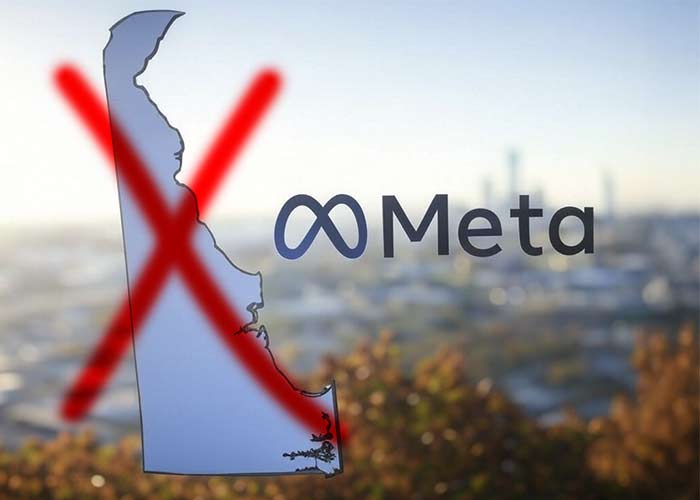OPINION
Dear Friends,
I have often said, in my opinion, the cost of perceived corruption, conflicts of interest, and seemingly arrogant, incorrect rulings by Leo Strine, Andre Bouchard and Kathaleen McCormick would eventually be borne by the Delaware public.
I wish I were wrong — or wish I had sounded the alarm louder during the TransPerfect case, which was the beginning of the end, in my view, of Delaware as the top U.S. home for corporate domiciles.
Now, we’re seeing so many companies leaving Delaware, from Elon Musk’s Tesla and Space X, to Meta and Dropbox, and TransPerfect and Tripadvisor. Seemingly corrupt and connected lawyers along with certain judges in Delaware, as I see it folks, are costing the Delaware taxpayer big time in the long run as corporations flee Delaware over absurd and illegitimate decisions.
Please see the New York Times story below, which cites the Wall Street Journal story that initially broke this huge news and embarrassment for the Delaware legal system and Chancery Court.
Some of you didn’t believe me when I started saying, a significant, corporate exit from Delaware was coming nearly a decade ago, which is now costing America’s First State. Now do you believe me???
Please send your feedback on this, folks. It is always welcome and appreciated.
Respectfully Yours,
JUDSON Bennett–Coastal Network
https://www.nytimes.com/2025/01/31/technology/meta-incorporation-delaware.html
Meta Said to Explore Incorporating in a Different State
The owner of Facebook and Instagram is incorporated in Delaware, but is considering a change. Its corporate headquarters would remain in Silicon Valley, people with knowledge of the matter said.
Meta, the owner of Facebook, Instagram and WhatsApp, is considering changing where it is incorporated from Delaware to another state, two people with knowledge of the matter said.
The company is looking at Texas and a handful of other states, said the people, who were not authorized to speak on the confidential discussions. The process is at an early stage and no decision has been made, they added, and Meta’s corporate headquarters would remain in Menlo Park, Calif.
Meta has been going through a corporate overhaul under Mark Zuckerberg, the company’s founder and chief executive. Mr. Zuckerberg has spent the past two years making work force cuts so that the company will operate more quickly and efficiently. More recently, he has aggressively courted President Trump and policymakers in Washington as they set an agenda for issues such as antitrust and artificial intelligence, which will affect the biggest tech firms.
A spokesman for Meta declined to comment on a potential reincorporation. The Wall Street Journal earlier reported that the company might exit Delaware and reincorporate in Texas or elsewhere.
Since Meta was founded as Facebook in 2004, it has been incorporated in Delaware. Many shareholder lawsuits are filed in Delaware courts, and Meta faces litigation there from a number of cases, including one stemming from a scandal over user privacy involving the voter profiling firm Cambridge Analytica in 2018.
Incorporating in another state that might be more favorable to companies rather than plaintiffs in class action lawsuits could help Meta in future shareholder litigation, the people said.
Last year, Elon Musk’s private rocket company, SpaceX, switched its incorporation to Texas from Delaware. Mr. Musk made the move weeks after a Delaware judge voided his pay package at Tesla, the electric vehicle maker that he leads.
That case was brought by Tesla shareholders who were challenging a stock options package that allowed Mr. Musk to acquire about 304 million Tesla shares at a preset price if the company achieved certain goals. The judge ruled that Mr. Musk had effectively overseen his own compensation plan, valued at more than $50 billion at the time, with the help of compliant board members.
“One could read this as a bet that because Musk moved Tesla and some of his other companies to Texas, the client effects will be that it’ll develop a jurisprudence friendly to controllers,” said Eric Talley, a corporate law and governance professor at Columbia Law School.
Over the past few years, Delaware Chancery Court has also issued rulings in other cases that have upended prior case law in the state and sent reverberations through legal circles about long established corporate governance practices. Some of those rulings have empowered shareholders and disadvantaged corporate boards of directors.
Meta has a dual-class stock structure that effectively gives Mr. Zuckerberg complete control of the company and its board of directors, something that could be challenged by the recent rulings in Delaware.
Incorporating in Texas is easier for established companies like Meta and Tesla, Mr. Talley said. A younger company still appears more legitimate, and trustworthy for shareholders, if it is incorporated in Delaware because the state has stricter legal requirements for operating, he said.
“The hope that Musk and Zuckerberg have is that the courts in Texas will be much more permissive about them doing whatever they want, even if it involves a conflict of interest,” Mr. Talley said. “There’s a much longer leash in Texas.”

